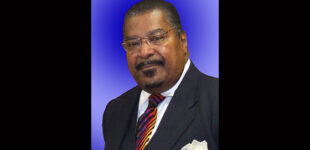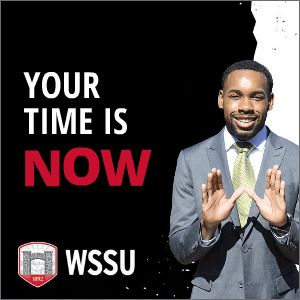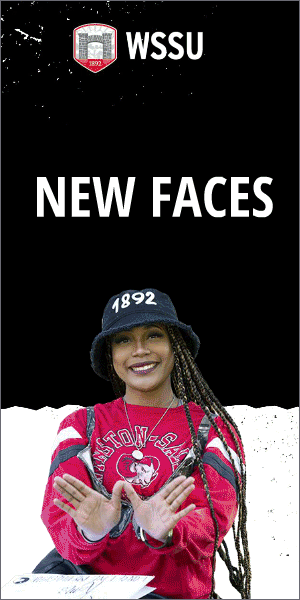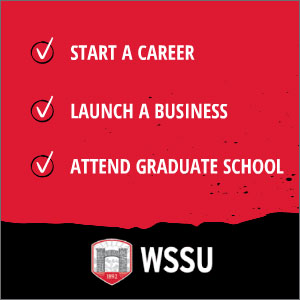Commentary: Inclusion in documentary of WSSU’s CSEM underscores its national prominence
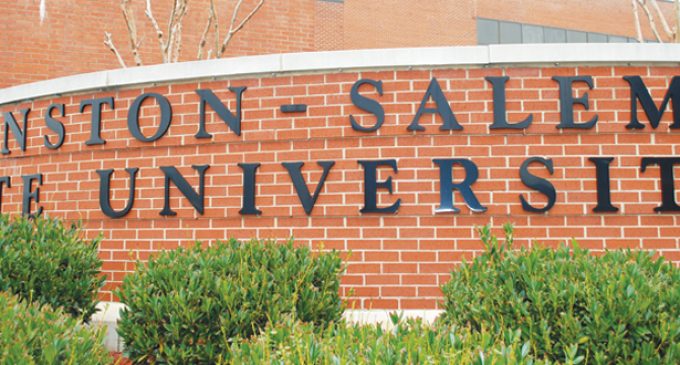
By John Ralley
The national emergence of Winston-Salem State University’s Center for the Study of Economic Mobility (CSEM) was clear earlier this month as an Emmy-winning filmmaker returned to campus for more interviews with members of the CSEM team.
The filmmaker, Tracy MacDonald, is working on the documentary “RIGGED” (set for release in late spring) with her husband, filmmaker Matt Zodrow and Executive Producer Jim Wolfston and Writer/Production Manager Jill Thacker. “RIGGED builds on the premise that throughout history, growing economic imbalance ultimately leads to social unrest, political upheaval, and war,” according to a press release for the film. “Through interviews with authors, historians, educators, and students, RIGGED also shows how U.S. higher education norms constitute a risk factor for triggering these historic consequences. The film includes compelling footage highlighting the efforts of innovative and courageous educators who have been questioning these values and leading the movement toward models that ‘meet students where they are’ — a movement that will ultimately transform colleges and universities into pathways for student engagement and social mobility. “
CSEM, led by Founding Director Craig Richardson and Associate Director Alvin Atkinson, was chosen for the film, one of just a handful of higher-learning initiatives nationwide, because of its own innovative efforts. CSEM’s inclusion was rooted in Richardson speaking at a social mobility summit in Portland, Oregon (MacDonald’s hometown) in 2018. That led to MacDonald and her film crew coming to CSEM’s own summit on social mobility on the WSSU campus this past April.
MacDonald was so captivated by CSEM that she made the return visit during the first week of February to film more interviews. On her first visit, she said, she was looking at WSSU’s role as an HBCU involved in social mobility. But she realized that CSEM, which will be three years old this fall, is a story in itself. “They’re going deep to look at the real issues, and the students are working with them,” MacDonald said. “They are going to the community and asking them what their issues are, instead of telling them what their issues are.”
In interviews MacDonald filmed this month, the symmetry between Richardson, who leads the CSEM fellows in research, and Atkinson, who leads in putting that research to work in communities of low resources surrounding the university, was evident. “The center is very unique in the way that Craig and Alvin work together to look at real problems in the community, using data but not getting stuck in the typical university silo situation of not really doing anything with that data,” MacDonald said. “I think the center is a model because of the way Craig and Alvin work together.”
Atkinson told MacDonald, “We’re trying to create a bridge” to the communities.
CSEM listens to what the residents say are the issues that most concern them. Fellows and students conduct research in the communities on those issues, and release the data gained to the public. For example, a study commissioned by CSEM on bus riders with jobs using the city bus system, as well as a documentary by local filmmaker Diana Greene commissioned by the center on a city bus rider and her young son, drove local dialogue on the issue and helped lead to The Winston-Salem Foundation establishing a grant program for groups with strategies for alleviating transportation problems.
CSEM concentrates on giving its fellows freedom to run with their groundbreaking ideas on research into the causes and effects of poverty. The fellows receive CSEM grants for an academic fiscal year, but often continue the research those grants funded. Charity Griffin, an assistant professor of psychology who was a 2018-19 fellow, continues her research on the effects of youth-led participatory action research (YPAR) on economic mobility for adolescents as they move to adulthood. She supervises WSSU students working in the local public-school system toward that end. She works to build trust in communities. She told the filmmakers a key question she keeps in mind: “What do the people want to know about barriers and opportunities in economic mobility and how can I help them?”
The fellows and, most important, their students learn through the process, creating new models for alleviating generational poverty.
As Atkinson told the filmmakers: “All these social justice movements over time, it’s come from the students.”
For more information about CSEM, go to https://www.wssu.edu/academics/colleges-and-departments/college-of-arts-sciences-business-education/center-for-study-of-economic-mobility/index.html.
John Railey is the senior writer and community relations consultant for CSEM. He is the former executive director of The Partnership for Prosperity, an initiative fighting poverty in Winston-Salem/Forsyth County, and the former editorial page editor of the Winston-Salem Journal. He can be reached at raileyjb@gmail.com.








